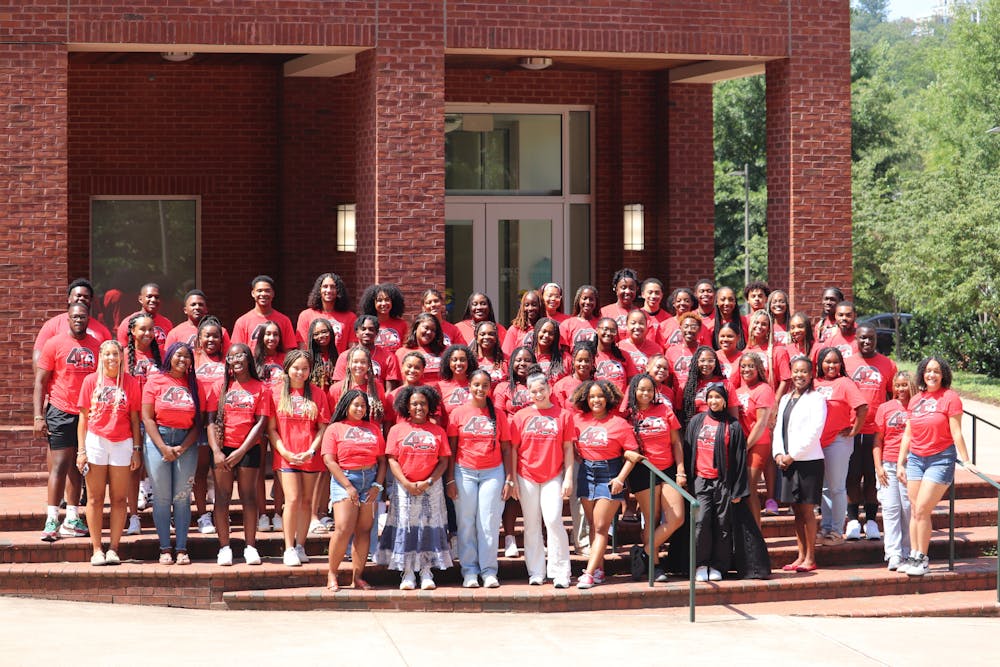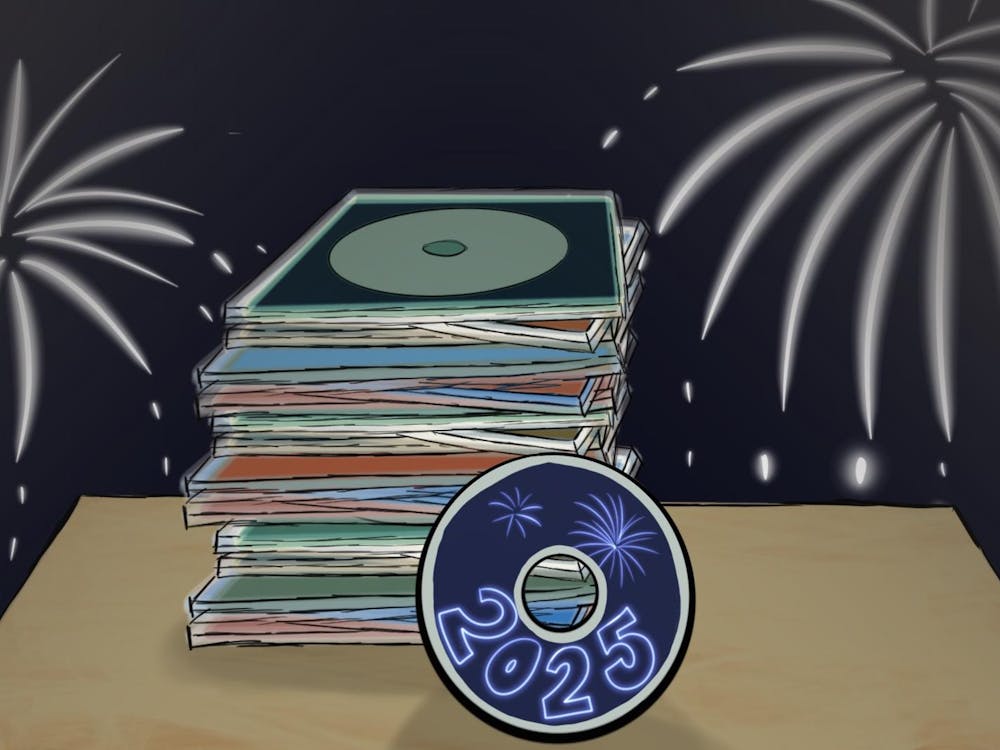The University's Office of African American Affairs is celebrating the 40th anniversary of its Peer Advisor Program, which matches Black first-year and transfer students with upperclassmen peers for mentoring. Founded in 1984, the OAAA created the program to address the University’s comparatively lower retention rate for Black students, and this advising system has since been commended by students, alumni and administrators alike.
The program offers students a range of activities, including workshops and seminars, and connects new students with peer advisors who provide them with support and counseling. Each advisor mentors multiple advisees and can offer support in whatever areas they may need — academic, social or emotional.
The pairings are based on academic and extracurricular interests, with the intention of connecting new students with an upperclassman who can provide them with personalized guidance. All incoming students who identify as Black are included as advisees in the program, and are matched with their advisors during the summer months ahead of move-in.
Dean Sylvia Terry served as the program’s director until her retirement in 2009, having transferred from the Office of Undergraduate Admissions to the OAAA in 1989, five years after the Peer Advisor Program was founded.
Prior to Terry’s arrival at the OAAA, the Peer Advisor Program did not work with all new Black students. Instead, it operated on a much smaller scale and only included students who were part of a specific OAAA summer transition program. After Terry became involved, the program expanded dramatically — advisors began connecting with new students through a variety of recruitment and welcoming events before they even started their first semester.
“We have students coming [to U.Va.] and staying, [instead of] having to leave now because of cultural differences.” Terry said. “[Students] are not having to leave because ‘I’m one thing and you may be another,’ but instead are coming together to celebrate one another.”
According to Dr. Darren Kelly, current dean of the OAAA and Class of 2004 alumnus, today’s advisors go through a spring orientation in April and begin connecting with their new advisees in the summer before the academic year starts. Current advisors send personalized letters written by hand, a contrast to the many emails that rising first years receive.
Class of 2012 alumna Wintre Foxworth Johnson, who experienced the program as both an advisee and a peer advisor, said the program’s early start helps Black first-year students feel welcome when they arrive at the University. She spoke to the authentic relationships she formed through the program, and the sense of ownership of the University which she gained through her connections to the program.
“One of the first places I remember being [on Grounds] is at the OAAA. This was one of the places where I knew I could go physically — I was there a lot — but also intellectually,” said Johnson. “Being in community with Black folks, in the Peer Advisor Program, was so much a part of my first-year experience of feeling like there was a connectedness.”
In addition to growing the Peer Advisor Program in size, Terry also created other events to foster a welcoming community for incoming and newly enrolled students. She established Harambee, an orientation event, and Harambee II, which celebrates students’ completion of their first semesters at the University.
Both of these events were designed to give Black students a sense of ownership and agency over their time at the University. She also created an initiative within the Peer Advising Program called “Raising the Bar,” which still operates today and provides group studying opportunities and academic support to students, as well as opportunities to hear from a range of academic groups and organizations.
Rather than dwelling on the hard work she has done for the program over the past 20 years, Terry said she saw the opportunity to work with students and administrators in the OAAA as a privilege.
“It wasn't work, it was fun. It was joy. I'm a very lucky lady, that I was given this clay to mold into that statue, the Peer Advisor Program,” Terry said. “I would say it's been joyful and just so full of pride.”
Kelly, who currently serves as the program’s director, was part of the program as both an advisee and an advisor during his time at the University. He said the longevity of the program reflects the character of those involved in it and the support that it has from current students and alumni.
“Whether it's giving their time or talent speaking to students, many [alumni] really look back on their peer advisor experience fondly,” Kelly said. “For me, it's important for our students to see the legacy [and] to understand just the generations of University students and peer advisors who came before who have continued to move in and make the program what it is today.”
One student who said they have benefited from the Peer Advisor Program is Class of 2023 alumna Ar’monii Price, who was an advisee and then served as senior peer advisor of external affairs during her fourth year, where she oversaw the marketing of the program. She noted that the program offered her an opportunity to find community and connect with her peers.
“It was great to be there for someone during their first year to answer their questions, point them in the right direction, and see how over years they just grow into amazing people who are involved in all these organizations, doing all these great things,” Price said. “Most of my closest friendships from college were because of my involvement in the program or from being directly connected to OAAA.”
This sense of belonging the advising program provides has had a tangible impact on the graduation rate of Black students at the University. In 2017, the University’s graduation rate of Black students was 80 percent, among the highest in the country. Price said the program benefits the University at large, as it can advertise the Peer Advisor Program as a step it takes to make Black students feel welcome.
“With U.Va. being a predominately white institution, and it typically being hard for Black students to find a sense of belonging, or home, I think [the program] helps to take the weight off of [new students’] shoulders of having to do the work to feel like they have a sense of belonging,” Price said. “That’s something that a lot of PWIs don’t have — they can’t say when Black students come that they’ll feel welcome and at home.”
Graduate Engineering student William Adu-Jamfi, who has been a peer advisor since his second-year, said he chose to become an advisor because his own experience as an advisee was so positive. Peer advisors also provide academic guidance to advisees, and Adu-Jamfi said the academic support the program provides has contributed to the success of Black students at the University.
“I definitely think it has impacted the Black community academically, with the [Raising the Bar] events three times a month which help increase academic proficiency and experience for Black students at the University,” Adu-Jamfi said. “[The program] has also given time for the Black community to bond. I think overall, it's helped strengthen the Black community and it's helped make the Black community more successful at U.Va.”
Johnson also noted how important the program was in contributing to the work that the University still has to do in terms of supporting Black students, and how strong the program has remained over the past 40 years.
“I think 40 years of a program just speaks to how integral the program is to this University,” Johnson said. “40 years of unwavering support for Black students, 40 years of a program that has worked. It's something that is sustained. I think that it just speaks to the visionary that Dean Terry is, [and] I'm looking forward to 40 more years of this program because I think it is much needed.”
Students selected to be peer advisors for the 2024-25 academic year will begin their work with an orientation session April 6.





